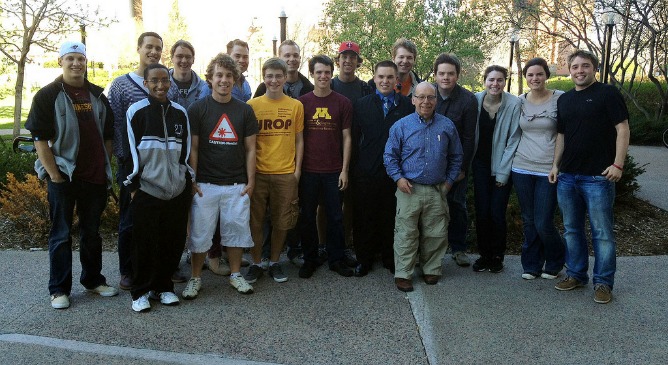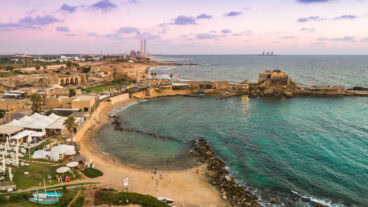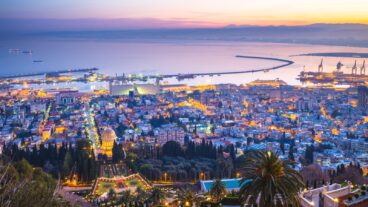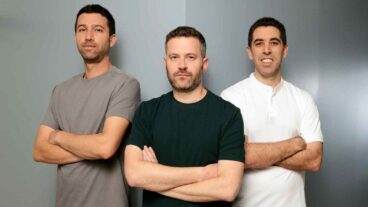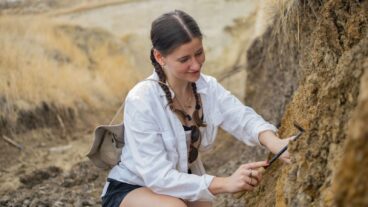Seventeen engineering and business majors from the University of Minnesota are coming to Israel with their professor for Keshet’s Israel-Jordan Global Seminar.
Arriving on May 13, Prof. Marvin Marshak and his class will meet with Saul Singer, co-author of Start-Up Nation The Story of Israel’s Economic Miracle; see how Urban Aeronautics developed a flying vehicle that can save lives; talk to Gemini Israel Funds Founding Partner Ed Mlavsky; find out about revolutionary gaming technology from PrimeSense; investigate the electricity-generating wastewater treatment pioneered by Emefcy; tour the BrightSource solar power installation in Dimona; and examine the “pillcam” diagnostic capsule from Given Imaging.
Marshak led a similar tour on his own in 2010, explains Keshet’s Steve Gray, venture capitalist turned tour guide. “The trip we put together for him this year combines a lot of the themes we deal with — Israeli innovation and entrepreneurship — with Prof. Marshak’s interests in university innovation,” Gray tells ISRAEL21c.
Spread the Word
• Email this article to friends or colleagues
• Share this article on Facebook or Twitter
• Write about and link to this article on your blog
• Local relevancy? Send this article to your local press
“Our overall goal is to expose the students to the interface between academia and business and see in a very direct and real sense how ideas and academic research are translated into application and into the business world.”
The students will have tours and meetings at the Weizmann Institute of Science, the Technion-Israel Institute of Technology in Haifa and Al-Quds University in East Jerusalem, as well as the technology-transfer companies at the Hebrew University of Jerusalem and at Hadassah-Hebrew University Medical Center. Vringo CEO Jon Medved will share his views on the Israeli startup “ecosystem,” and they will meet with Palestinian entrepreneurs near Jericho before seeing sights in neighboring Jordan.
Showing the unique features of Israel
Marshak, a physicist, tells ISRAEL21c he has “long been intrigued by the unique features of Israel in terms of development of technology and startup companies. But the university had never permitted a class to go to Israel until 2010. I persuaded the administration that this was about technology and not politics, and to show the students cultures that are different than what they’re used to.”
Marshak says that upper Midwest American culture, better known locally as “Minnesota nice,” has a downside that he terms “Minnesota don’t-stick-your-neck-out-too-
“I wanted to show them the contrasts between their culture, Israeli culture and Jordanian culture,” he says. “My larger goal is for the students torealize that they can go outside the US and work as professionals in their specialties, and to demonstrate that their conceptions of the world asdeveloped by American media are not terribly accurate in many cases.”
He says his students on the 2010 trip “had a number of preconceptions that they’d see a lot of violence. But the place we saw the most guns wasat the American embassy in Amman.” He chuckles. “They were somewhat surprised by that.”
He wants to help his students understand the factors that lead to innovation, particularly in technology, and what assets exist in Israel to facilitate this process or even perhaps work against it. They will participate in an outdoor training exercise using methods developed by the Israel Defense Forces to promote team cohesion and leadership training, in order to understand the role of the army in pre-startup team-building.
Among the other planned stops with a Keshet guide are the Israel Water Authority’s central filtration plant — one of the most sophisticated of its kind in the world — and Naharayim Hydroelectric Plant, one of the more tangible symbols of the Israeli-Jordanian peace treaty; the biological pest control experts at Sde Eliyahu’s Bio-Bee; the PresenTense social enterpreneurship community; and Oramed Pharmaceuticals; as well as Trendlines’ Misgav Venture Center’s incubator for life science startups.
The trip won’t be all work and no play. The group will travel to Caesarea, which Marshak calls “an ancient ‘startup city’ founded by King Herod the Great 2000 years ago, using cutting edge technologies of the time.” They’ll visit Pavo Microbrewery in picturesque Zichron Yaakov, explore the Carmel Mountains, Nazareth, Bethlehem, religious sites in Jerusalem and the capital city’s Machane Yehuda outdoor market; Masada and the Dead Sea.




